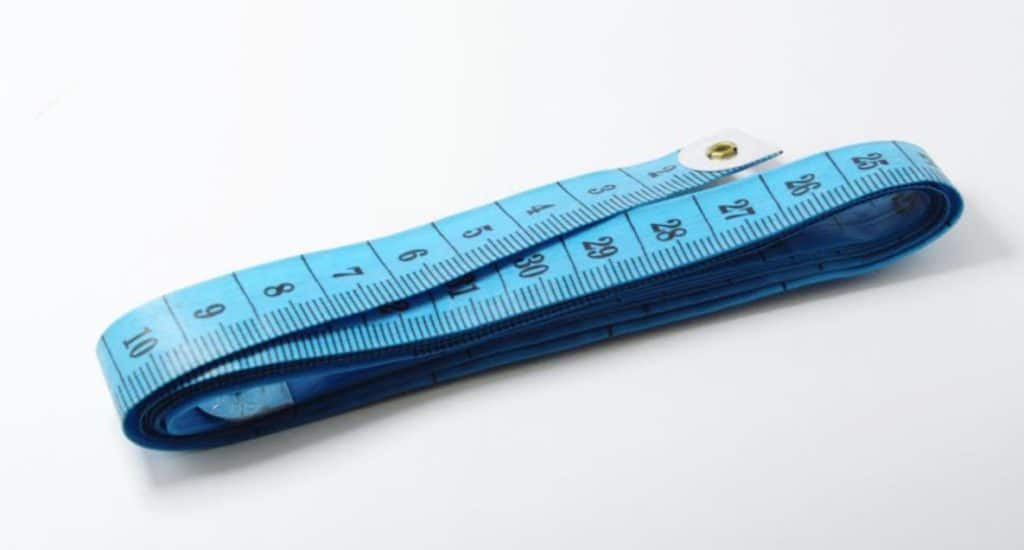Regular visits to your doctor have become a normal part of your routine since you became pregnant. An ultrasound scan may even be performed on occasion. This helps to monitor your baby’s health while still in your womb. In addition, an ultrasound can be used to determine your baby’s measurement before he or she arrives in your arms.
Furthermore, your antenatal clinics will also include tests that reveal your hormone levels, blood pressure readings, and sugar levels during pregnancy.
In this article, you will learn some of the things you should expect during antenatal visits, what baby measurement means; how to do it, what it means if your baby is measuring ahead, the possible risk factors, and some takeaways.

What to expect during antenatal visits
Most pregnant women see their doctor at least once a month during pregnancy. However, some moms-to-be end up seeing their doctor more than once a month especially when the baby is approaching term or because of an underlying disease that may impact the health of the baby.
During these visits, your doctor will perform a brief physical examination on you.
With a nurse’s help, your doctor will determine your height, weight, and blood pressure. Furthermore, you will be asked some questions to determine your background health and family history. The doctor will also ask about your baby’s movements in the womb, your sleep patterns, and prenatal vitamin use.
For the physical part of the examination, your doctor will check:
- Your fundal height (or belly size)
- Your baby’s heartbeat
- Weight gain
- Swelling, especially in the foot.
What does baby measurement mean?
This is a means to approximate your baby’s size while still in the womb.
There is usually a relationship between your fundal height and the timeline of your pregnancy. For instance, for a 20 week-pregnancy, your fundal height should be about 20 ± 3 cm.
However, it is important to note that this measurement is not always accurate due to factors like:
- Your baby size
- Multiple pregnancies
- Genetic variances
What does it mean if your baby is measuring ahead?
When your baby is measuring ahead or big, it means that your baby’s measurement values seem to be higher than their expected gestational size for the week of pregnancy you are in. This does not always mean there’s something wrong with your baby or that you will have problems with delivery.
For this, you do not have to worry.
How to measure your fundal height
Before you try to measure your fundal height at home, make sure you know where your pubic bone is and how to locate the top of your uterus. You can ask your doctor or midwife to show you how to locate them.

Once you know the location, you can follow the following steps to measure your fundal height:
- Make sure that your bladder is empty: A full bladder has the potential to increase your fundal height measurement by a few centimeters. Also, when you’re at the hospital for follow-up, make sure your bladder is empty too before your doctor measures your fundal height.
- Lie down on your back with your legs in front of you.
- Use a centimeter-graded tape measure: Then place the zero mark at the top of your uterus and move down vertically until you reach the top of your pubic bone. Whatever measurement you get is your fundal height.
Why your baby is measuring ahead
There are a lot of reasons your baby may be measuring ahead.
One of them is that your baby will come out big or you’re carrying more than one baby. This should not be a reason for fear or worry, especially as to if you’ll be able to have a normal vaginal delivery or a C-section.

Your doctor or midwife can guide you through this and help you make the best decision.
Another reason your baby may be measuring ahead is excess amniotic fluid production. As you’d learn in this post, amniotic fluid surrounds your baby and offers some sort of protection during pregnancy. Excess amniotic fluid production leads to a condition called polyhydramnios.
You may also have sizeable fundal measurements because you have fibroids of significant size. Large fibroids can force your womb to the front, causing your baby to measure ahead. You can also read this article to know if fibroids can affect your chances of getting pregnant.
Risk factors
Some factors can put you at risk of measuring ahead. Thankfully, some of these factors can be controlled.
These include:
- Previous history of measuring ahead: If you have given birth to a large baby before, you are at an increased risk of having another large baby so most likely, you’ll measure ahead again.
- Obesity and diabetes: If your diabetes is not well controlled, it is possible that your baby will have larger shoulders and fat compared to a baby whose mother is not diabetic.
- Having a boy: Male babies sometimes weigh more than females. If you’re having a male child, there’s a high chance that he would measure ahead.
- Overdue pregnancy: If you are past your due date, your baby is at an increased risk to measure ahead.
Takeaway
Most times, you may not be able to prevent measuring ahead, however, you can take control and have a healthy pregnancy irrespective of your baby’s size.
You can do this by:
- Scheduling a preconstruction appointment with your doctor before conception. This way, the doctor will provide guidance on what you should and should not do during pregnancy.
- Monitor your weight during pregnancy: Gaining a healthy amount of weight during pregnancy supports your baby’s growth and development, especially if you have a normal weight before pregnancy.
- Follow your doctor’s advice and recommendations for physical activities. This will ensure you don’t add too much weight during pregnancy.
You can also read the post on pregnancy-safe exercise options to try.
Conclusion
Measuring ahead is not something you should be scared of. Ensure you go for your routine check-up and follow your doctor’s advice.
All you have to do is stay healthy and anticipate the arrival of your little one.

